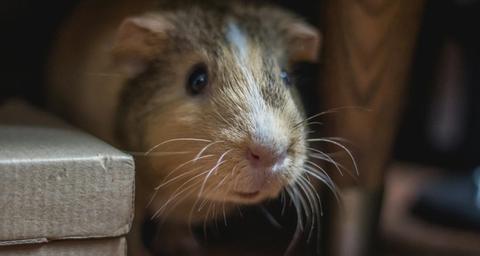What Attracts Mice to Homes and Buildings?
Mice are always looking for warm, safe places to hide—making homes, apartments, and offices perfect spots. They often sneak into small cracks, gaps, attics, and basements to stay out of sight. Indoors, they can find plenty of food, like crumbs, spilled snacks, and even pet food. They can also chew through packaging to reach items like cereals, grains, and pantry goods.
Mice prefer to live where they feel safe from predators, and where food and shelter are easy to find. Once inside, they can quickly breed and spread through a building.
How Mice Get In: Common Entry Points
Mice can squeeze through tiny openings and use hidden pathways inside buildings, such as:
- Cavity walls, insulation layers, or false ceilings
- Gaps in floors or behind walls
- Ventilation shafts
- Electrical wiring or piping systems
Typical entry points on the outside of buildings include:
- Weep holes in brick walls
- Gaps in ventilation grilles
- Spaces under garage or exterior doors
- Cracks around poorly sealed windows
- Openings under broken or missing roof tiles
Interesting Facts About Mice
Mice are small, but they’re very smart. They have a great sense of direction and can remember places by using smell, touch (especially with their whiskers), and even the Earth’s magnetic field. This helps them move around easily and return to their nest, even from far away.
Mice also have excellent hearing. They can hear high-pitched sounds that humans can't. This helps them stay alert to danger, find food, and move safely in the dark.
Even though mice are clever creatures, they can still cause damage and health risks in homes or businesses. If you think you have a mouse problem, it’s best to call a professional pest control service to handle it safely and effectively.
How to Keep Mice Out of Your Home or Office
Mice like staying close to people because we unknowingly give them food and shelter. When the weather gets cooler or rainy, they often move indoors and become a problem.
To prevent a mice infestation, take simple steps like:
- Seal up small holes, gaps, or cracks around your home
- Fix broken roof tiles or damaged walls
- Store food in airtight containers
- Clean up food crumbs and leftovers right away
>> Learn more ways to protect your space from mice
⚠️ Thinking of Using Mouse Poison at Home in Singapore? Read This First.
Mouse poison may seem like a quick fix—but it’s not always safe or legal.
In many regions, including Singapore, the use of rodenticides (mouse poison) is tightly controlled due to serious health and environmental risks. These substances can harm children, pets, wildlife, and contaminate food or water.
What You Should Know in Singapore:
- Home-use rodenticides are not recommended and may be restricted under NEA guidelines
- Some industries are not allowed to use poisons due to safety and compliance rules
- Only licensed pest control companies can apply rodenticides—and only as a last resort
👉Always ask for documentation if a pest control company uses poison. It shows they’re certified and following strict safety standards.
Choose smarter, safer methods for long-term mouse control.
Your health—and the environment—depend on it.
